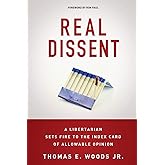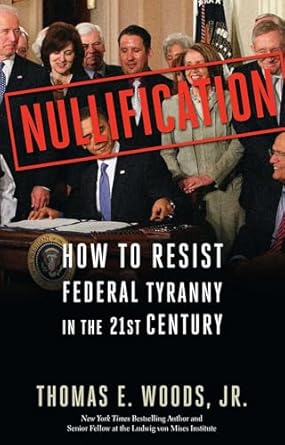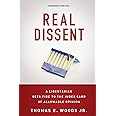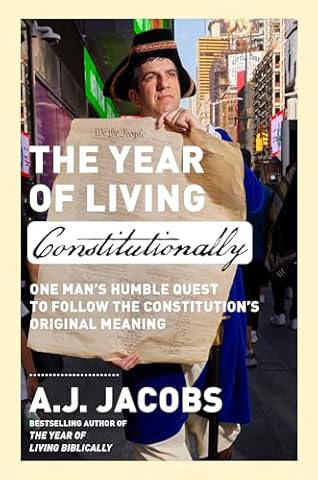
Enjoy fast, free delivery, exclusive deals, and award-winning movies & TV shows with Prime
Try Prime
and start saving today with fast, free delivery
Amazon Prime includes:
Fast, FREE Delivery is available to Prime members. To join, select "Try Amazon Prime and start saving today with Fast, FREE Delivery" below the Add to Cart button.
Amazon Prime members enjoy:- Cardmembers earn 5% Back at Amazon.com with a Prime Credit Card.
- Unlimited Free Two-Day Delivery
- Streaming of thousands of movies and TV shows with limited ads on Prime Video.
- A Kindle book to borrow for free each month - with no due dates
- Listen to over 2 million songs and hundreds of playlists
- Unlimited photo storage with anywhere access
Important: Your credit card will NOT be charged when you start your free trial or if you cancel during the trial period. If you're happy with Amazon Prime, do nothing. At the end of the free trial, your membership will automatically upgrade to a monthly membership.
Buy new:
$25.20$25.20
Ships from: Amazon Sold by: WildeWestMercantile
Save with Used - Good
$9.17$9.17
Ships from: Amazon Sold by: Goodwill Good Skills
0.79 mi | San Francisco 94103

Download the free Kindle app and start reading Kindle books instantly on your smartphone, tablet, or computer - no Kindle device required.
Read instantly on your browser with Kindle for Web.
Using your mobile phone camera - scan the code below and download the Kindle app.



 Audible sample
Audible sample Follow the author
OK
Nullification: How to Resist Federal Tyranny in the 21st Century Hardcover – June 28, 2010
Purchase options and add-ons
- Print length309 pages
- LanguageEnglish
- PublisherRegnery
- Publication dateJune 28, 2010
- Dimensions6 x 1.1 x 9 inches
- ISBN-101596981490
- ISBN-13978-1596981492
Frequently bought together

Customers who viewed this item also viewed
 Rise of the Warrior Cop: The Militarization of America's Police ForcesPaperbackFREE Shipping on orders over $35 shipped by AmazonGet it as soon as Tuesday, Sep 24
Rise of the Warrior Cop: The Militarization of America's Police ForcesPaperbackFREE Shipping on orders over $35 shipped by AmazonGet it as soon as Tuesday, Sep 24 Economics in One Lesson: The Shortest and Surest Way to Understand Basic EconomicsPaperbackFREE Shipping on orders over $35 shipped by AmazonGet it as soon as Tuesday, Sep 24
Economics in One Lesson: The Shortest and Surest Way to Understand Basic EconomicsPaperbackFREE Shipping on orders over $35 shipped by AmazonGet it as soon as Tuesday, Sep 24 How the Catholic Church Built Western CivilizationPaperbackFREE Shipping on orders over $35 shipped by AmazonUsually ships within 1 to 3 weeks
How the Catholic Church Built Western CivilizationPaperbackFREE Shipping on orders over $35 shipped by AmazonUsually ships within 1 to 3 weeks The Real Lincoln: A New Look at Abraham Lincoln, His Agenda, and an Unnecessary WarPaperbackFREE Shipping on orders over $35 shipped by AmazonGet it as soon as Tuesday, Sep 24
The Real Lincoln: A New Look at Abraham Lincoln, His Agenda, and an Unnecessary WarPaperbackFREE Shipping on orders over $35 shipped by AmazonGet it as soon as Tuesday, Sep 24 Diary of a Psychosis: How Public Health Disgraced Itself During COVID ManiaHardcoverFREE Shipping on orders over $35 shipped by AmazonGet it as soon as Tuesday, Sep 24
Diary of a Psychosis: How Public Health Disgraced Itself During COVID ManiaHardcoverFREE Shipping on orders over $35 shipped by AmazonGet it as soon as Tuesday, Sep 24 Real Dissent: A Libertarian Sets Fire to the Index Card of Allowable OpinionPaperbackFREE Shipping on orders over $35 shipped by AmazonGet it as soon as Tuesday, Sep 24
Real Dissent: A Libertarian Sets Fire to the Index Card of Allowable OpinionPaperbackFREE Shipping on orders over $35 shipped by AmazonGet it as soon as Tuesday, Sep 24
Editorial Reviews
From the Back Cover
Praise for Nullification
?In clear and well-documented arguments, Tom Woods gives hope to those who wish to tame the federal monster as the Framers intended?by using the utterly lawful and historically accepted principle of Nullification. You must read this book.”
?The Honorable Andrew P. Napolitano, Senior Judicial Analyst, Fox News Channel
?Thomas Jefferson said, ?Whensoever the General Government assumes undelegated powers, its acts are unauthoritative, void, and of no force.’ It turns out that at least two thirds of congressional spending is absent of any constitutional authority. That means that at the very least, it is going to take the vigorous use of nullification to restore the American republic. Anyone in the Tea Party movement or elsewhere who really wants to limit government ought to start with this highly readable and informative book.”
?Walter E. Williams, John M. Olin Distinguished Professor of Economics, George Mason University
?This book is a must read for all who respect and cherish liberty. During these times that challenge our freedoms there is no one more qualified to make U.S. history relevant to the fight against big government than Thomas Woods.”
?Barry M. Goldwater, Jr., former Member of Congress
About the Author
Product details
- Publisher : Regnery; First Edition (June 28, 2010)
- Language : English
- Hardcover : 309 pages
- ISBN-10 : 1596981490
- ISBN-13 : 978-1596981492
- Item Weight : 1 pounds
- Dimensions : 6 x 1.1 x 9 inches
- Best Sellers Rank: #121,506 in Books (See Top 100 in Books)
- #100 in General Constitutional Law
- #403 in Political Conservatism & Liberalism
- #1,180 in U.S. State & Local History
- Customer Reviews:
About the author

Thomas E. Woods, Jr., was educated at Harvard and Columbia University (where he received his PhD), and was honored with the Hayek Lifetime Achievement Award in Vienna in 2019. Woods is the New York Times bestselling author of 13 books, which in turn have been translated into over a dozen languages, and his book The Church and the Market won the first prize in the Templeton Enterprise Awards.
Woods has appeared on MSNBC, CNBC, FOX News, FOX Business, C-SPAN, and other outlets, produced his own program for EWTN, and he is the host of The Tom Woods Show. He was a creator of the self-taught, K-12 Ron Paul homeschool curriculum. He lives in central Florida with his wife and five daughters.
Related products with free delivery on eligible orders
Customer reviews
Customer Reviews, including Product Star Ratings help customers to learn more about the product and decide whether it is the right product for them.
To calculate the overall star rating and percentage breakdown by star, we don’t use a simple average. Instead, our system considers things like how recent a review is and if the reviewer bought the item on Amazon. It also analyzed reviews to verify trustworthiness.
Learn more how customers reviews work on AmazonCustomers say
Customers find the book to be an excellent, convincing, and stimulating read. They appreciate the author's great job explaining the concepts and history behind nullification. Readers describe the book as a great primer on the subject and a legal concept most people are not aware of. They also say the author presents a strong legal case for nullifying the federal government and offers a valid, constitutionally supported solution.
AI-generated from the text of customer reviews
Customers find the book excellent, convincing, and stimulating. They say the author does an excellent job explaining why it's important. Readers also mention the book is well-written and a quick read.
"...1800's might be difficult for some modern readers, it is well worth the effort to read and understand our nation's history in order to change the..." Read more
"...rich in its historical analysis of nullification and the author does an excellent job explaining why it was important in the past and even more..." Read more
"...This makes it an enjoyable read (with the exception of a few of the original documents)...." Read more
"This is an excellent book in which we as Americans can find hope in the battle against federal over-reach...." Read more
Customers find the book very informative, saying it does a great job explaining concepts and answering critics. They say it's a decent primer on the subject for the uninitiated, full of facts and figures. Readers also mention the book provides the information they were looking for and is an easy read.
"...This is a no-brainer.Woods does a great job explaining these concepts and answers critics...." Read more
"...However, Thomas Woods does a great job of writing a very well-documented thesis that shows how nullification was used by both Northern and Southern..." Read more
"...This book is very rich in its historical analysis of nullification and the author does an excellent job explaining why it was important in the past..." Read more
"...Yet, it does a fantastic job of creating theoretical ideas and arguments as to how and why this can be an effective tool against centralized..." Read more
Customers find the book great about a legal concept most people are not even aware of. They say it offers a valid, constitutionally supported solution for the States to reduce federal abuses. Readers also mention the book provides many examples of nullification.
"...This is a great book about a legal concept most people are not even aware is an option for opposing unconstitutional federal laws, much less an..." Read more
"The author presents a strong legal case for nullification...." Read more
"...takes you through these issues AND offers a valid, constitutionally supported solution for the States to reduce Federal government over-reach and..." Read more
"...Woods gives many examples of Nullification, many are recent examples...." Read more
-
Top reviews
Top reviews from the United States
There was a problem filtering reviews right now. Please try again later.
Woods cites as precedent the Kentucky Resolutions of 1798 and the Virginia Resolutions of 1799. These were written by the state legislatures in response to President John Adams' Alien and Sedition Acts which, among other things, made it a crime to simply criticize the government.
Anyway, with that stage set, Woods expounds upon the Compact Theory of the Constitution. The United States was created by an agreement of the States, not the general population living in the Colonies. This is an important concept because when the Federal Government passes a law or claims authority and power not granted by the Constitution, who can judge?
Most of us would say the Supreme Court, but how can a branch of the Federal Government objectively rule on actions of the Federal Government? The Supreme Court is comprised of men and women hand-picked by the very people who create and execute the legislation of this country. No matter how much the Supreme Court may claim to be an objective arbiter in such matters, no one can deny that the Federal Government, aided by the Supreme Court, has overstepped its constitutional bounds.
That's where the States come in. Whenever an objective judge cannot be found to decide on matters regarding an agreement (or compact) the decision is left to the compact's original parties. In this case, the States, as the parties who agreed to form a Federal Government and grant it certain, limited powers, are the entities who have the authority to decide whether their creation, the Federal Government, has exceeded its constitutional authority. This is a no-brainer.
Woods does a great job explaining these concepts and answers critics. Read this book to get a better idea of how our Founding Fathers intended our government to work, and why the State Legislatures should redouble their efforts to resist Federal encroachment on powers reserved to the States and to the American people by the Ninth and Tenth Amendments.
I don't see how anyone can deny the historical argument Tom Woods lays out in "Nullification" -- that at the time of the American founding and for several generations thereafter, it was widely (though not universally, by any means) held that individual American states retained the right to "interpose" themselves between their citizens and the central government in order to "nullify" (prevent the enforcement of) unconstitutional laws. Articulated most clearly in the Virginia and Kentucky Resolutions of 1798 and 1799 respectively, the principle of nullification, and the actual threat of interposition, was invoked several times by various states over subsequent years -- including, most energetically, by some states that had previously emphatically rejected the Resolutions just years before. As a newly-minted citizen of the Constitution State, I was tickled to read about the governor and legislature of Connecticut's 1809 refusal to enforce President Jefferson's act of embargo. Even more inspiring, though, was the refusal of Wisconsin's legislature and governor, across the span of several years, to surrender a citizen to the feds for prosecution on charges of violating the fugitive slave law (note to Hollywood: someone please make a movie about Joshua Glover and Sherman Booth; thank you).
The historical argument, though, is merely the foundation for the author's key point: that the United States was indeed founded -- as the name implies -- as a voluntary union of states retaining their rights and sovereignty, "not [to quote the Kentucky Resolutions] united on the principle of unlimited submission to their general government." Woods argues the so-called "compact theory" of the Constitution is not only correct, but was also the clear intention and understanding of the founders, the constitutional ratification conventions ... even of centralizers like the Federalists. Understanding the compact theory, from which the power of nullification flows, is essential to a full and accurate understanding of American history and, more importantly -- to use Woods' chapter title -- "What Is (or Are) the United States, Anyway?"
Civic Religion teaches that nullification as a doctrine died with the Confederacy in 1865. Attempting to link nullification and the defense of slavery is a common slander, and one Woods decisively refutes (for one thing, as noted above, one of the most energetic applications of the doctrine was Wisconsin's refusal to allow enforcement of the *pro-slavery* Fugitive Slave Act). Federal supremacy, and of the Supreme Court in particular as the final and absolute arbiter of what the Constitution means, is so deeply ingrained in American psychological and political practice that it's hard to imagine a renascent nullification movement could ever gain serious steam in the modern U.S. But there are rumblings here and there across the "homeland," as Woods describes. From the medical marijuana movement in California and the Northwest to opposition to various elements of Obamacare, people from all over the political spectrum are looking for new ways to rein in out-of-control federal power. As the author points out several times, nothing else has worked. "If anything is going to change," he writes, "we must employ every mechanism of defense that Thomas Jefferson bequeathed to us, not just the ones that won't offend Katie Couric or the New York Times" (p. 143).
Whether in elementary school or law school, compact theory and nullification aren't taught anymore. More than "lost history," they are suppressed history: what could be more threatening to The Way Things Are than the ideas that federal power isn't absolute, that the states are more than provinces of a centralized state, and that citizens have the right -- nay, the obligation -- not to obey the unconstitutional usurpations of ambitious politicians? But what if The Way Things Are aren't The Way Things Were Meant to Be? Shouldn't we do something about it? Or to put it another way, yet again, what if he's right?












